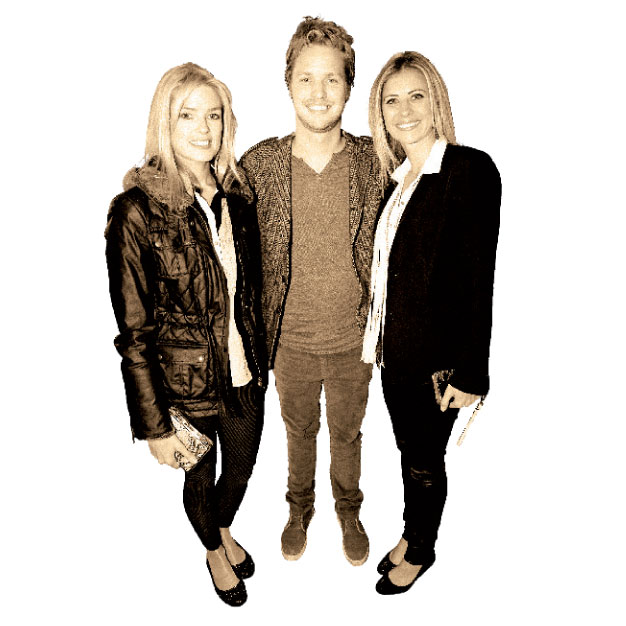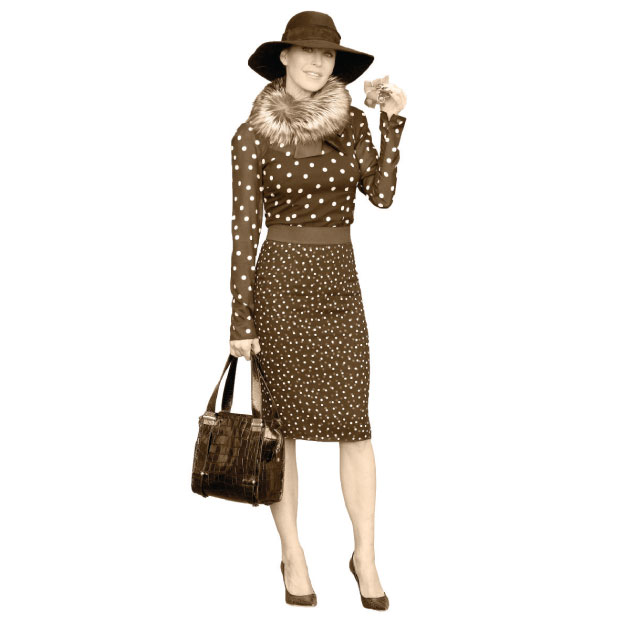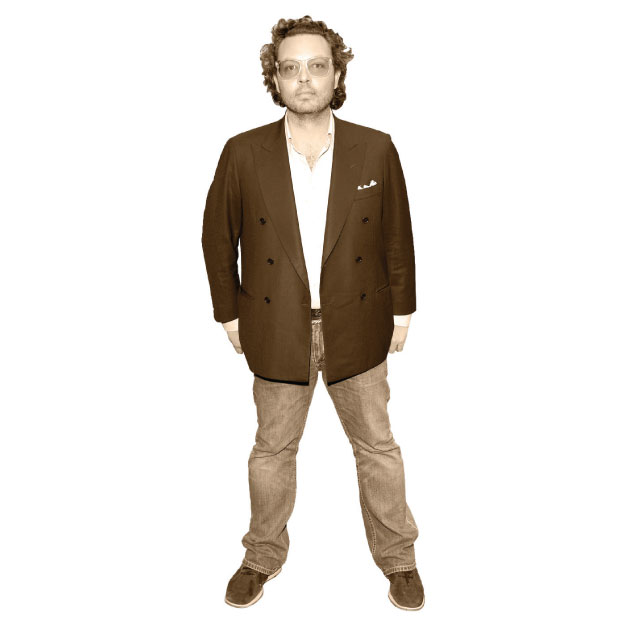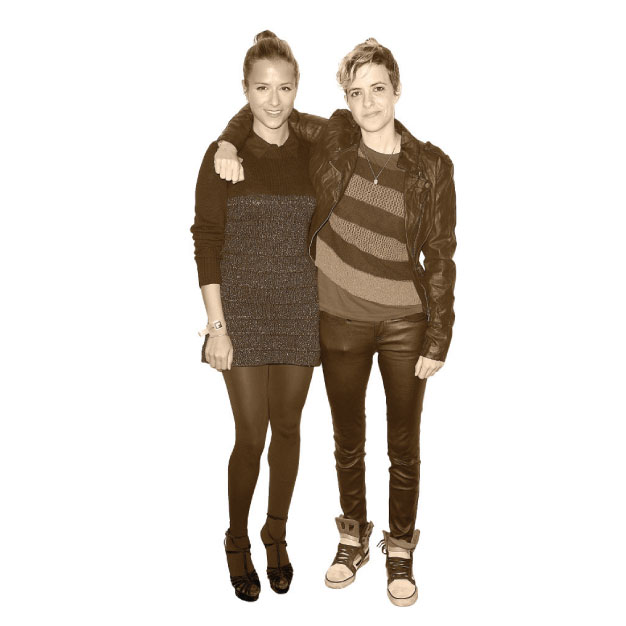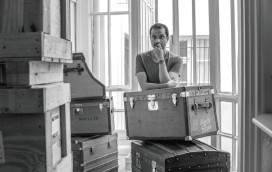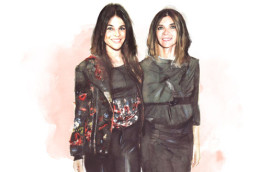Walking into the New York office of social media company Mediabend, the first things one notices are its energy and its interiors. Beyond its buzzing staff, creating such luxury shopping sites as Lifestyle Mirror and Elizabeth Street, are an American flag owned by John F. Kennedy and a massive photograph by the late Dennis Hopper, and after them a series of four enormous expressionist paintings – forged not by some famous abstract painter, but by the owner’s young daughter.
Family bonds, clearly, are key to the success of Emanuele Della Valle – if not financially, then emotionally. “My family was equally happy when we had very little,” he says, noting that his family’s wealth, stemming from the Tod’s empire of which his father is CEO, only became a vast fortune in the past couple of decades. “I got the lesson of humility and hard work from an early age from my grandfather. At one point, he lived in immense poverty, surviving on a piece of bread a day. From him, we learned it’s about what you do, not about your last name.”
Della Valle isn’t the only modern-day heir to abandon a facile trust-fund life and strike out on his own. Although many of the young rich may have brand surnames so powerful that they’re virtually synonymous with their homelands (take the royal David Linley in London, or the American newspaper heiress Amanda Hearst), these days it simply isn’t chic – in fact, it’s frowned upon – to live the life solely of a socialite or playboy.
While this younger generation is clearly aware of how they appear in the media, it is not just social approval that appears to drive them. A streak of entrepreneurial endeavor seems to have evolved, a goal to get their hands dirty, and to have their company or cause become a self-earning business entity.
This is true all over the globe. At the age of just 28, for instance, Carnival Cruiselines heiress Sarah Arison is becoming one of the most important arts philanthropists in the United States. Charlotte Dellal, granddaughter of the notorious gambler “Black Jack” Dellal, spearheads the accessories brand Charlotte Olympia. Sam Branson, son of Virgin founder Richard, runs a film company specializing in ethical content. Camilla Al Fayed, whose father once owned Harrods, is attempting to overhaul the fashion label Issa.
“There is no such thing as ‘society’ today,” observes the social arbiter David Patrick Columbia, editor and co-founder of newyorksocialdiary.com. “Society is driven by money and the ability to make it.”
Columbia rightly notes that the jetset days documented by photographer Slim Aarons, culminating in the heady excesses of the 1980s, are long past. The vanishing of café society has pervaded the consciousness of a new generation. It is no longer just about buying a $10,000 ticket to some charity function, but turning their cause into a self-financing business entity that earns them both legitimacy in the outside world and the satisfaction of having done it themselves.
Many parents spurred their offspring on towards independence. “I didn’t have the choice of doing nothing,” says the young Chinese jeweler Bao Bao Wan, the granddaughter of Wan Li, former Chairman of the National People’s Congress, who grew up within China’s presidential compound. The former Paris debutante has since seen her luxe jewelry represented around the world – no mean achievement with “Made in China” stamped on it. “But then, one of my missions is to solve that misunderstanding and to open that knot,” she says.
Jaisal Singh, descendent of one of India’s most illustrious families, says he was always expected to forge his own identity. “My parents were very, very tough on me to do something,” he says. Today he and his wife own Suján, the preservation-minded luxury hospitality brand responsible for Jawai, the country’s latest luxury leopard camp. “It wasn’t like I had an open checkbook from my family, either. I had access to the family legacy, but it was sink or swim. We had nothing in the bank.”
Many others who were never expected to own a business have excelled. Tamara Mellon, the brains behind Jimmy Choo, recalls her English headmistress telling her and her fellow female students, “Don’t worry about the education. You’re all going to get married, and it’s going to be absolutely fine.”
Often, when the scions of successful families do get there, they don’t always get the credit they deserve, Mellon says. People tend to forget all the nameless jobs, such as working at fashion boutique Browns, that she undertook prior to her great shoe success. Instead they dwell on the fact that she is now one of the wealthiest women in England. “They forget what it took to get where I am,” she says, adding that the gender discrimination she encountered along the way “rots the ground underneath you. I fought for what I earned. Even after all that, you still get derided and questioned as to whether you really have ability.”
No matter their disparate backgrounds, successes such as Mellon or Singh stress that motivation stems from their families. How that is communicated, though, varies. “If a parent is looking for their child to fulfill the parent’s dream, then of course that’s unhealthy,” says the rock ’n’ roll jewelry designer Ann Dexter-Jones (anndexterjones.com). “You’ve got to nurture them to feel good about their own strengths.”
Dexter-Jones’s five offspring, from her marriages to Laurence Ronson of Heron International and the rocker Mick Jones, are a case study in pursuing their private passions. Mark Ronson, Samantha Ronson and Alexander Dexter-Jones are flourishing musicians, songwriters and composers; Charlotte Ronson is an accomplished fashion designer; and Annabelle Dexter-Jones is a rising actress.
Their mother’s rule, she says, was to not treat her children like hand-puppets. “I impressed upon them that success is not about fame, money, or status. It just may happen to be a result.” And although they mingled with the likes of Mick Jagger, Michael Douglas, John McEnroe and Joan Didion, being surrounded by fame was never allowed to go to their heads. “None of my kids believe in any sort of nepotism,” says Dexter-Jones. “They do it their way with pride.”
Although connections do, of course, help. And why not? Plum Le-Tan’s introduction of her daughter Olympia to Gilles Dufour, for instance, helped her to get an internship and subsequently become his muse at Chanel. “I’m quite happy to assist in any way I can to help young kids get a foot on the ladder,” says Le-Tan. “Connections help.”
Amanda Hearst, the 30-year-old great-granddaughter of William Randolph Hearst, admits that her background does carry weight. “If my last name helps get me access to something I care about, then I say, ‘Let’s go for it’,” she says, with particular reference to Friends of Finn, the charity she founded to raise money to eradicate inhumane puppy mills. Alongside friends such as Georgina Bloomberg, Kick Kennedy and Kimberly Ovitz, the young socialite has helped to ensure the closure of several deplorable puppy farms. “Whatever you do, it’s got to feel visceral,” she says.
Her passion is much admired by John Kluge, whose late father was once the richest man in America. Kluge co-founded Toilet Hackers to try to provide better sanitation facilities around the world (one child, he says, dies every 17 seconds due to a lack of clean water and poor hygiene).
His father, also John Kluge, donated the vast majority of his multibillion-dollar estate to philanthropic causes – something his son doesn’t begrudge. “It’s a blessing,” he says. “I don’t have the luxury of not being able to work for a living, and I get to go out and create my own personhood and achievements.”
Although having the same name as his father can have its disadvantages, too. “Often people assume that if you come from a family with means, then you have the same resources, and that can be a hurdle when raising money.”
Hard work, and bits of luck perhaps, will determine whether this new generation achieves its destiny. Not everyone can be Tory Burch, the laser-focused former socialite turned fashion mogul. They readily concede their good fortune, but point to their parents for their inspiration.
“If you come from a family of clear personalities, no matter if it is a tycoon or someone who runs a café in a small town, it is perhaps not as easy to do what you want to do,” says Della Valle. “But they have lived a life, so why not try to learn the treasures of their experiences? I always listen to my father’s advice. I may do something different afterwards, but he’s a no-nonsense guy and he respects me for it.”
“No matter what your background,” he adds, “the integrity of a human being comes from the family and the work you do.”
